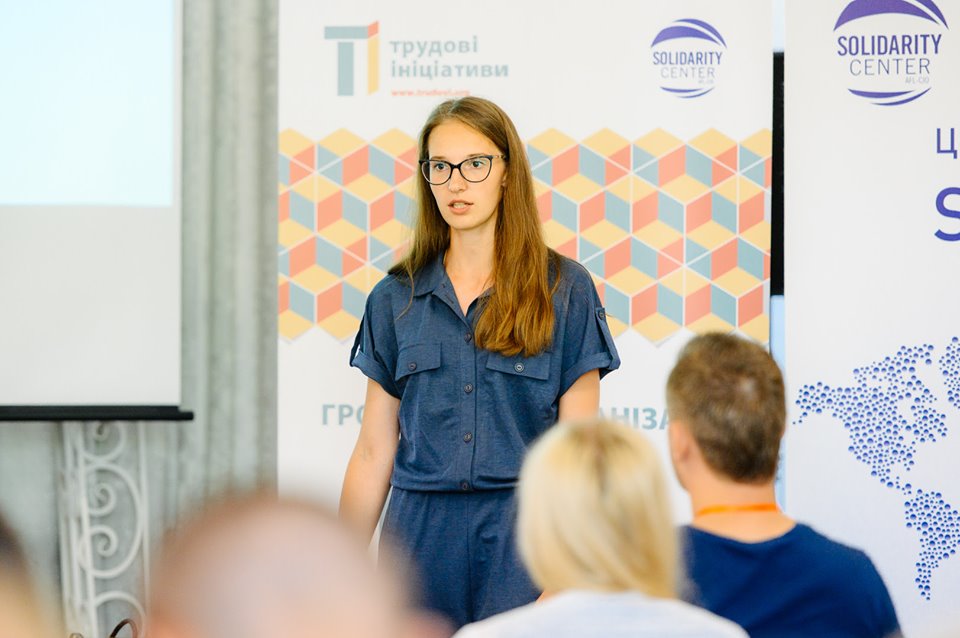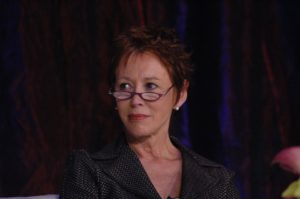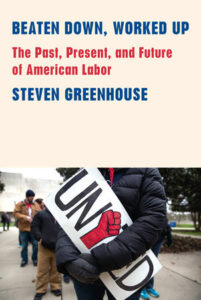
Solidarity Center
Labor unions are often a country’s largest, most representative civil society groups, with a membership base that adds democratic credentials and legitimacy that most NGOs can only envy.
Public approval of labor unions has risen to 62% in the U.S., the highest level since 2003. But the path forward for a diminished labor movement is far from clear. “In the balance,” Steven Greenhouse argues, “is the future of our economy and our democracy.” In “Beaten Down, Worked Up: The Past, Present, and Future of American Labor,” Greenhouse calls for a return to labor organizing’s earlier strategies and principles.
Labor union activists from Ukraine and guests from Moldova, Belarus, Kyrgyzstan and Estonia took part in a recent 2019 Trade Union School which included workshops on public speaking, labor movement history,anti-discrimination, collective bargaining strategies and media and communications tools, the Solidarity Center reports.
The event coincided with the loss of two of the labor movement’s most dedicated and eloquent democracy advocates.

Solidarity Center
Barbara Shailor Borosage (right), a former labor union officer who from 2010 until retiring in 2014 was the State Department’s special representative for international labor affairs, died Aug. 2 at her home in Annapolis. She was 72. The cause was pulmonary fibrosis, said her husband, Robert Borosage, The Washington Post reports:
She spent her early career as international director of the International Association of Machinists and Aerospace Workers and then as the AFL-CIO’s international affairs director. At the AFL-CIO, she was an adviser to Presidents John Sweeney and Richard Trumka on international policy, and she oversaw the work of field offices supporting unions in 55 countries.
The Solidarity Center is deeply saddened by the death of our colleague and friend, Lyuba Frenkel (below), senior program officer for Europe and Central Asia, who succumbed July 30 after a brave battle with brain cancer, the Solidarity Center’s Kate Conradt writes:

Solidarity Center
Over Lyuba’s 26-year career with the Solidarity Center, she was instrumental in designing, supporting and monitoring projects that bolstered freedom of association throughout Eastern Europe, and for several years also in Southeast Asia. She built close cooperation with local partners, with a focus on collective bargaining, grievance representation, labor laws, trade union organizing, dispute resolution, migration and worker rights. Throughout her successful career, Lyuba never missed an opportunity to convince workers their lives can be better when they join in a union to fight for their interests together.
“A quiet person with a passion for the work, Lyuba helped thousands of workers understand and exercise their rights,” said Rudy Porter, Solidarity Center regional program director, Europe and Central Asia. “She will be deeply missed, both within the Solidarity Center* and among the dozens of partner organizations around the globe with which she had such close ties.”
 After years of pioneering labor/community coalitions to address political issues such as energy and workers’ rights, Shailor rose up the ranks to become international director of the Machinists (IAM), the AFL-CIO adds:
After years of pioneering labor/community coalitions to address political issues such as energy and workers’ rights, Shailor rose up the ranks to become international director of the Machinists (IAM), the AFL-CIO adds:
She was chosen in 1995 by then-AFL-CIO President John Sweeney to reorganize and refocus the federation’s international work. She served in the role of international affairs director for the AFL-CIO and oversaw the work of the Solidarity Center, refocusing its mission for modern times. After leaving the federation, she served as the U.S. State Department’s special representative for international labor affairs until 2014.
Shailor was instrumental in forging new coalitions between labor and citizen organizations, including Citizen Action and Jobs with Justice, the IAM adds.
For her part, Lyuba Frenkel was a tireless defender of those who suffered persecution because of their participation in independent unions, and almost daily sought new ways to push their cases to the forefront of public attention, her colleagues add.
“In her 26 years with the Solidarity Center, Lyuba stood firmly by people engaged in some of the world’s most consequential struggles for worker rights and human dignity. She did so with integrity and generosity, born of her deep commitment to justice. Lyuba was respected, liked and admired by everyone she worked with, and we will miss her,” said Shawna Bader-Blau, Solidarity Center executive director.
*A core institute of the National Endowment for Democracy.







